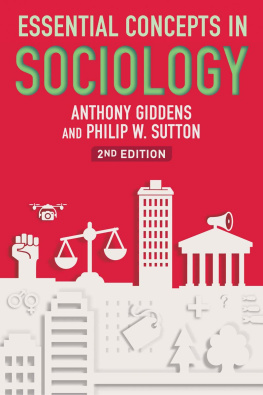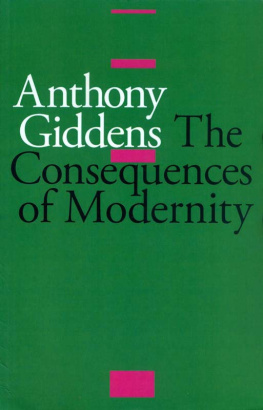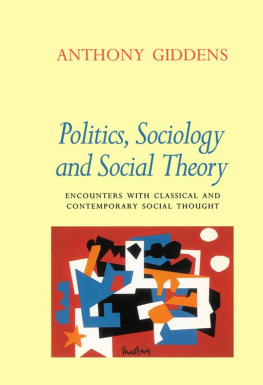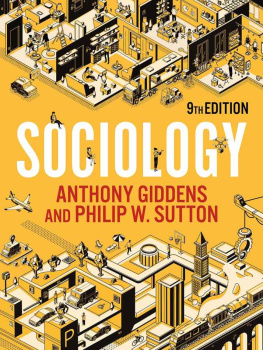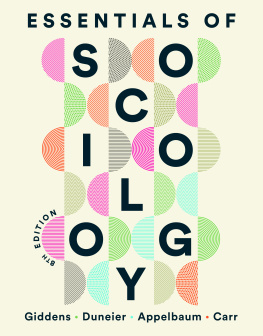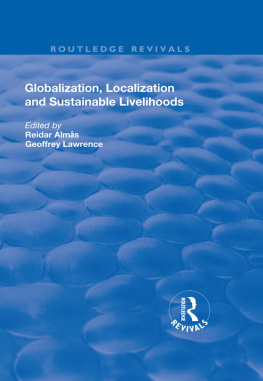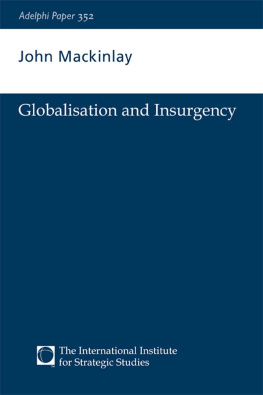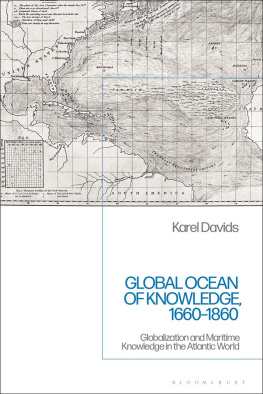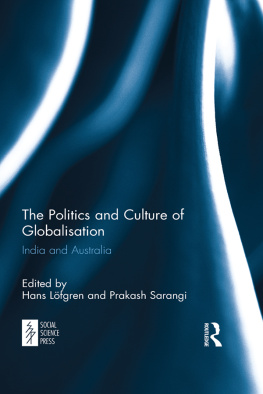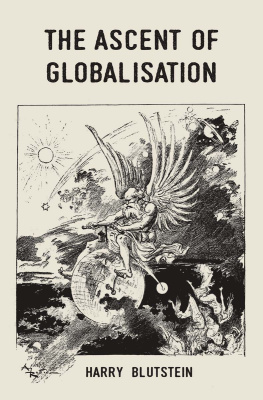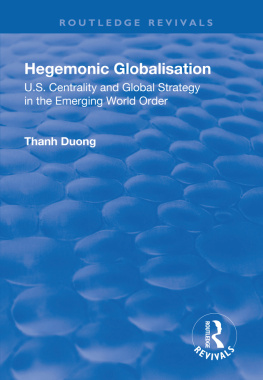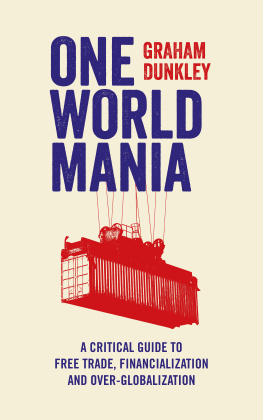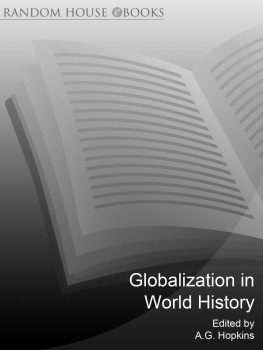ANTHONY GIDDENS
Anthony Giddens is Director of the LSE and is the author or editor of more than thirty books, which have been translated into as many languages. Ten books, including one four-volume study, have been written specifically devoted to Giddenss work. Among his own most recent books are: The Consequences of Modernity (1989), Modernity and Self Identity (1991), The Transformation of Intimacy (1992), Beyond Left and Right (1994), In Defence of Sociology (1996), and The Third Way: The Renewal of Social Democracy (1998). The Third Way has been extensively discussed by academics and political leaders throughout the world. He is also the author of Sociology, the leading introductory text in the subject. In 1999 he was the BBC Reith Lecturer.
Runaway World
ANTHONY GIDDENS
RUNAWAY WORLD
How Globalisation is Reshaping our Lives

To Michele and Katy
Published in 2002 by
Profile Books Ltd
3A Exmouth House
Pine Street
Exmouth Market
London ECIR OJH
www.profilebooks.com
Copyright Anthony Giddens, 1999, 2002
Typeset in Bembo by
MacGuru
info@macguru.org.uk
Printed and bound in Great Britain by
Bookmarque Ltd, Croydon, Surrey
The moral right of the author has been asserted.
All rights reserved. Without limiting the rights under copyright reserved above, no part of this publication may be reproduced, stored or introduced into a retrieval system, or transmitted, in any form or by any means (electronic, mechanical, photocopying, recording or otherwise), without the prior written permission of both the copyright owner and the publisher of this book.
A CIP catalogue record for this book is available from the British Library.
ISBN-10 1 86197 429 9
ISBN-13 978 1 86197 429 7
Contents
Preface to the second edition
I gave the BBC talks on which this book is based more than three years ago. The theme of the book the transformative impact of globalisation upon our lives has become even more widely debated now than it was then. The term globalisation has itself become ever more globalised. There can be few quasi-technical words that have achieved such wide currency.
When I was writing the talks, in late 1998, the antiglobalisation movement had barely got going. Since that date, many thousands of demonstrators opposing globalisation have taken to the streets, in cities ranging from Seattle to Buenos Aires, Gothenburg and Genoa. Moreover, no one three years ago anticipated the events of 11 September 2001.
Each of these sets of developments demands analysis, but I should say at the outset that there is little or nothing in the text of the book which I would want to change in the light of them. Consider first what happened on 11 September. All the sections of the book are relevant to the events of that day and their aftermath. Intensifying globalisation, documented in the opening chapter, furnishes both the context of the attacks and the means that made them possible. The terrorists target was the United States, the prime global power. They used jet aircraft as destructive weapons. In staging the events as they did, they had in mind a global media audience. The second plane crashed into the South Tower of the World Trade Centre about half an hour after the first guaranteeing dramatic television coverage. It has been estimated that a billion people across the world saw the second plane hit the South Tower in real time.
The concern of the second chapter, risk, speaks for itself. The events of 11 September 2001 have alerted us to risks about which most people previously including states leaders were quite sanguine. Whatever happens to Al-Qaeda, the destruction of the Trade Towers and the damaging of the Pentagon will almost certainly not be the only examples of major terrorist activity organised on a transnational basis. We have become newly conscious of the vulnerabilities that can be exploited by terrorist action, such as the targeting of nuclear power plants, the poisoning of water supplies, or the propagation of deadly diseases.
The titles of the other three chapters tradition, family and democracy might seem more remote, but they are not. Al-Qaeda is a fundamentalist movement. There is an intimate and inseparable relation between tradition and fundamentalism, as I try to make clear. Fundamentalist ideas are by no means limited to Islam, or indeed to religion more generally. Fundamentalist groups and struggles can come into being in any sphere where traditional beliefs and practices are becoming corroded. Fundamentalism religious, nationalist or ethnic is always edged with the possibility of violence, since it is the antithesis of tolerance. To the fundamentalist, there is only one right and proper way of life, and everyone else had better get out of the way.
A preoccupation with the family, and particularly with the changing role of women, is in turn at the core of some of the major forms of fundamentalism, particularly those of a religious variety. Religious fundamentalists want to roll back modernity and nowhere more obviously so than in respect of the emancipation of women. Whether in the shape of the American religious right, or Islamic movements, the fundamentalists are vociferous defenders of the traditional family, and hostile to the attempts of women to break away from their traditional social and cultural roles. And of course they are also commonly antagonistic to democracy, the very principles of which depend upon universal rights.
Nations today, I say in the original text, mostly no longer have enemies, but instead face risks and dangers. Have the events of 11 September 2001 rendered this statement inappropriate or false? I dont think so. Intensifying globalisation has radically altered the nature of nation-states, and their modes of relating to each other, especially the industrial nations. A large number of nations have given up the impulse to invade or conquer one another. Belligerent states still exist in various parts of the world, such as Iraq under Saddam Hussein. But the most important sources of danger, for industrial and developing countries alike, lie in failed or collapsing states, together with the fears and hatreds such situations engender. Afghanistan is an obvious example. Countries struggling against poverty, bearing the long-term impact of colonialism and the Cold War, or both, and where government lacks legitimacy, are breeding grounds for resentment and despair. They can become havens for transnational networks, which, as the rise of Al-Qaeda showed, can provide a very real source of threat to the integrity of nations.
The events of 11 September 2001 prompted a flurry of speculative writing. Did they form a watershed in current world history? Is it true, as was so commonly said at the time, that the world will never be the same again? The easiest way to consider these questions is to consider the world on 10 September 2001. How different would the world situation look today if the terrorist attacks in the United States had either failed or not taken place?
It is clear that 11 September was less of a fault-line in history than many commentators, reeling from the unexpected and impossible nature of what happened, asserted at the time. The opening of the Berlin Wall in 1989 was a far more signal event for contemporary history than the attacks on New York and Washington indeed, in some respects it was the backdrop to them. The militant Islamic groups that created Al-Qaeda, after all, originally were actively supported by the Americans during the latter phases of the Cold War, as a means of ejecting the Soviets from Afghanistan. With the ending of the Cold War, neither the West nor Russia took much further interest in what happened in Afghanistan, leaving the country to stew in the mess they had helped to create. Much the same happened in other parts of the globe, including other regions in Asia, Africa and Central and Southern Africa. Many of the failing states of the world are located in areas where the two super-powers during the Cold War period fought their battles by proxy.
Next page

